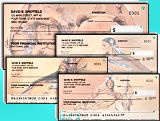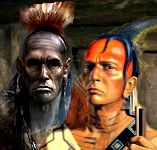 |
|
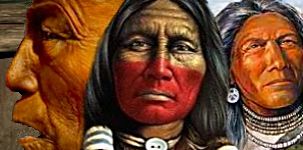 |
|||
 |
 |
 |
 |
||
|
|
|||||
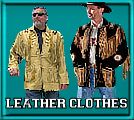     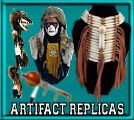 |
cherokee freedmen |
Artifact Replicas|Jewelry|Clothing|Figurines|Art Prints|On Sale|Closeouts
Custom Search
What's New Cherokee FreedmenHistorically, The Cherokee Freedmen were indistinguishable culturally from the Cherokee themselves, as they spoke Cherokee as a first language and the majority of Freedmen practiced Cherokee religious practices. The Cherokee Freedmen have made claims that the majority of Cherokee Freedmen living today are of Cherokee ancestry due to inter-marriage with the Cherokee citizens. The Freedmen Rolls, however, do not display or record a degree of Cherokee blood, which has led to controversies and claims by Cherokee Nation Citizens who are of Cherokee ancestry. Cherokees held the greatest number of slaves of any group in Indian Territory.Slavery has been a component of Cherokee society since before European contact. It was common for many indian tribes to replenish their populations with prisoners taken durning raids and acts of war. Sometimes the captives were adopted into a specific family, in other instances they continued to hold the status of slaves. In the early 1800s, some Cherokee plantation owners in the American south bought black slaves). The 1809 Meigs Census counted 583 "negro slaves" of Cherokee owners, while in 1935 that number was 1,592, with 7.4% of Cherokee families owning slaves. Owning slaves was less common among full blood Cherokee. During the American Civil War, Cherokee soldiers fought on both sides. After the war, the factions of Cherokee who supported the Union and those who supported the Confederacy continued to be at odds. Those supporting the confederacy largely felt that the freedmen should be removed from Cherokee Country, while others felt that they should be adopted into the tribe. On June 25, 1863, two years before the Thirteenth Amendment), all slaves within the limits of the Cherokee Nation were emancipated by an act of the Cherokee National Council. The 1866 treaty between the Cherokee and the United StatesUS Federal officials pushed for equal status between tribal members and freedmen, and on July 19, 1866, the Cherokee Nation signed a treaty with the United States extending Cherokee citizenship to the freedmen and their descendants (article 9). The treaty also set aside a large tract for freedmen to settle if they desired (article 4) and granted self-determination within the constraints of the greater Cherokee Nation (article 5). The 1866 treaty did not, however, lead to full acceptance of the Freedmen into the Cherokee Nation. This resistance was largely due to economic factors. In 1880, a census was compiled in order to distribute per capita funds related to recent land sales. In the same year, the Cherokee senate voted to deny citizenship to freedmen who had failed to comply with the 1866 treaty by returning to the Cherokee Nation within six months. However the 1880 census did not even include those freedmen who had never left, claiming that the treaty granted civil and political rights, but not the right to share in tribal assets. Cherokee Chief Dennis Wolf Bushyhead (1877-1887) opposed this action, but was overridden by the Council. The federal government interviened, passing a bill in 1888 mandating that adopted citizens of the Cheokee nation share in tribal assets, and compiled what was known as the Wallace Roll in 1989 to count those who were included (including 3,524 Freedmen). The freedmen won the claims court case that followed, Witmire v. Cherokee Nation and United States (30 Ct. Clms. 138(1875)). The Cherokee had already distributed the funds, and the U.S. as co-defendant in the case, was to pay the award. The Kern-Clifton roll completed in 1896 listed 5,600 freedmen who received their portion of the funds in the following decade. The Dawes Act of 1887The Dawes Act of 1877 converted tribal lands to individual ownership. As a part of the act and subsequent bills, the Dawes Commission required a roll which listed people in the Indian Territory under three categories, freedmen, intermarried whites, and Indians by blood. The Dawes Rolls of 1902 listed 41,798 citizens of the Cherokee Nation, 4,924 of them freedmen. The 1908 Curtis Act authorized the Dawes Commission to allot funds without the consent of tribal government (both the Dawes and Curtis Acts are seen as great restrictions on tribal sovereignty), and allowed the federal government to extract taxes from white citizens living in the Indian territories. Allotments were distributed, and the Cherokee Nation was officially dissolved when Oklahoma became a state in1907. At that time, the freedmen had self-determination. There were 1,659 freedmen listed on the Kern-Clifton roll, which were not included in the Dawes Roll, who were not given Cherokee citizenship rights due to their failure to satisfy the criterion of the 1866 treaty. In 1924, Congress passed a jurisdictional act which allowed the Cherokees to file suit against the United States to recover the funds paid to freedmen under the Kern-Clifton Rolls in 1894. The result of this suit held that the Kern-Clifton Rolls were only valid for that one distribution, and were superseded by later rolls. The Indian Claims Commission Act of 1946 again stirred interest in the status of the 1,659 freedmen included in the Kern-Clifton Roll but not the later roll. In the 1940s, the Cherokee Freedmen's Association was formedThe Cherokee Freedmen's Association consisted of over 100 freedmen descendants of freedmen on the Wallace, Kern-Clifton, and Dawes Rolls. The group filed petition with the Indian Claims Commission in 1951, which was denied in 1961, since the claims were individual in nature and outside of the jurisdiction of the Indian Claims Commission. Appeals stretched to 1971, but all were denied. The Cherokee Freedmen's Association were faced with two issues. On one hand, the Dawes Rolls, a federally mandated tally, were accepted as defining who were legally and politically Cherokee, and on the other hand, the courts saw their claims as a tribal matter and outside of their jurisdiction. In the 1970s incentives instituted by the Bureau of Indian Affairs such as free health care lured many descendants of Indians by blood Dawes enrollees to join the Cherokee Nation. These were extended to the Freedmen as well. However, as the makeup of the Cherokee Nation shifted, the sentiments of those in power shifted as well. CDIB Card Required to VoteThe Cherokee election registration committee in 1977-1978 amended the rules for registering to vote, requiring individuals to have a certified degree of Indian blood to vote. There is controversy over whether this is in violation of the 1976 Cherokee Constitution which based citizenship on the Dawes Rolls. In practice, a certified degree of Indian blood has been a criteria for citizenship since the 1976 constitution. For instance, in 1984, then Deputy Chief Wilma Mankiller said that freedmen "should not be given membership in the Cherokee tribe. That is for people with Cherokee blood." (Baltimore Sun, July 29, 1984) On June 18, 1983, a group of freedmen went to the Muskogee Courthouse to vote for principal chief of the Cherokee Nation. Although they were Dawes enrollees, and had received funds from the nation resulting from recent land sales, and had voted in 1979, they were turned away from the polls and told that freedmen did not have the right to vote. Few of over 4,000 freedmen with Cherokee blood have sought full recognition as citizens due to the complicated questions about their own identity such a claim would pose. On July 7, 1983, Reverend Roger H. Nero and five other original enrollees sent a complaint to the civil rights division of the Department of Justice, and on June 18, 1984 Nero and 16 other freedmen filed a class action suit against Principal Chief Ross Swimmer, the tribal registrar, a tribal council member, the tribal election committee, the United States, the Office of the President, the Department of the Interior, the Office of the Secretary, the Bureau of Indian Affairs, and three BIA employees claiming discrimination on the basis of race. The suit sought nearly $750 million and wanted the last election to be declared null and void. This suit has been criticized as a political stunt by Swimmer's opponent in that election, Perry Wheeler.That case and an appeal heard in 1989 both were resolved against the freedmen on account of jurisdiction. Cherokee Freedmen TodayCherokee Freedmen today feel that they have been gradually pushed out of the Cherokee Nation, and that the process has left each generation less aware of its rights and its history. Sturm reports that most Cherokee Freedmen do not self-identify as Cherokee, and are often only vaguely aware of their history. Blacks in the Tallequah area live in largely segregated communities. The lack of success of these battles and the cultural distance between the community and Cherokee history are cited as causes in the general disinterest in continuing the fight, although the benefits, such as eligibility for scholarships have caused some freedmen families to seek to register their children. Cherokees by lineage have also pushed occasionally to garner full citizenship for Freemen. David Cornsilks, editor of the small independent newspaper, the Cherokee Observer, and founder of the Cherokee National Party sees the issue of honoring the 1866 treaty as an issue of sovereignty. He believes that if the Cherokee Nation exerts its jurisdiction more fully, it will increase its power base and silence some of its critics. Other non-White Cherokee have expressed solidarity with freedmen due to their similarities of religion (Southern Baptist) and the sense of community (albeit African American) found among freedmen. David Cornsilks, a Cherokee Citizen is a controversial social activist and Native American Gay Rights Activist and performed the first same-sex marriage between two Cherokee Nation women in defiance of the Tribal Council ban on same sex marriage. David was also pivitol in litigating the Freedmen issue in the Cherokee Nation Tribal Courts and was successful in winning the right for the Cherokee Freedmen to obtain Citizenship which has been at the center of the current controversy. New constitution passed in 1999 by Cherokee Nation was rejected by BIAIn 1999, a new constitution was passed by vote in the Cherokee Nation, but was rejected by the BIA in part because it did not grant voting rights to freedmen. In the 2003 election of current Principal Chief Chad Smith, the new constitution was again passed, although it awaits BIA acceptance. On March 13, 2006, Smith stated in his state of the nation address that the issue of voting rights for freedmen should be put to a vote. On March 7, 2006, the Cherokee Nation Judicial Appeal Tribunal had announced that the Cherokee Freedmen, the descendants of African American (typically former slaves) who had been made citizens of the tribe by a post-Civil War treaty between the United States and the Cherokee, were eligible for membership as Cherokee Citizens because they were classified by the Federal Government as Indians by being entered on the Dawes Commission Lands rolls during the early 1900s. However, the Principal Chief of the Cherokee Nation, Chad Smith, recently announced that because of issues raised by the Cherokee People, the issue of the membership of the Freedmen was being considered for a vote regarding proposed amendments to the Cherokee Nation Constitution. These amendments are intended to restrict tribal membership exclusively to Cherokees by blood descent, thus excluding the freedmen from tribal membership. Currently, the Cherokee Nation Constitution restricts who may serve as an elected official to persons of Cherokee blood. The tribe voted on March 3, 2007 whether to reject the 1866 treaty or to allow the 2006 decision to stand. With 76.6% of the votes cast by those who participated, the tribal citizenship for descendants of black slaves was revoked. Due to the election that resulted in the ousting of the Freedmen, the Cherokee Nation has come under considerable fire from various political circles, including the US Congressional Black Caucus. There have even been calls for the the revocation of all federal funding for the Cherokee Nation. The election has also drawn focus to potentially illegal constitutional issues, as the election took place under a constitution that was not approved by the Secretary of Interior as acknowledged during an April 2007 Cherokee Nation rules committee meeting. Cherokee Freedmen reinstated as citizens, pending court appealsThe Cherokee Freedmen were reinstated as citizens of the Cherokee Nation by the Cherokee Nation Tribal Courts on May 15, 2007 while appeals are pending in the Cherokee Nation Courts and Federal Court. On May 22, 2007, the Cherokee Nation received notice from the United States Bureau of Indian Affairs that the BIA and Federal Government had denied the Cherokee Nation's 1999 Amendments to the 1975 Cherokee Nation Constitution because it required BIA approval, which had not been obtained. The BIA also stated concerns that the Cherokee Nation had excluded the Cherokee Freedmen from voting for the 1999 Constitutional Amendments, since they had been improperly shorn of their rights of citizenship years earlier and were not allowed to participate in the constitutional approval. The Cherokee Nation Supreme Court ruled that Cherokee Nation could take away the approval authority it had granted the federal government. “The Cherokee Nation Supreme Court spoke clearly that the BIA had no authority to approve the Cherokee Nation Constitution,” said Chad Smith, Principal Chief of the Cherokee Nation. “If the BIA has its way, the Cherokee Nation cannot even amend our own constitution. This is contrary to federal policy and court decisions handed down time after time over the last 30 years. It is insulting and wrong, and we will take all appropriate steps to defend our nationhood and right to self-determination.” “What is at stake here is the sovereignty and self-determination of all Indian tribes,” Smith said. “The BIA is calling into question the right of Indians to be able to decide, through the exercise of their cherished democratic freedoms, the content of their own constitutions. This lies at the core of our fundamental right to self-governance, a principle which has been upheld and respected by the U.S. government for decades. As Cherokee people, we must stand behind the order of our own Supreme Court.” In May, 2007, the Attorney General of the Cherokee Nation agreed to temporarily grant citizenship rights to Freedmen while the constitutionality of the vote is discussed in court. A decision is expected sometime in June 2007. FURTHER READING: BlackRedRoots.org 
Portrait of Black Hawk, Indian Chief Framed Art Print Catlin, George 27 in. x 33 in. Buy at AllPosters.com |
|
||||||||||||||||||||||||||||||||||||||||||||||||||||||||||||||||||||||||||||||||||||||||||||||||||||||||||||||
| ||||||||||||||||||||||||||||||||||||||||||||||||||||||||||||||||||||||||||||||||||||||||||||||||||||||||||||||||
Site Designed by: Mazaska Web Design
Hosted by: HostIt4You.com
© 1999-2008 AAANativeArts.com
+3
file: cherokee freedmen

